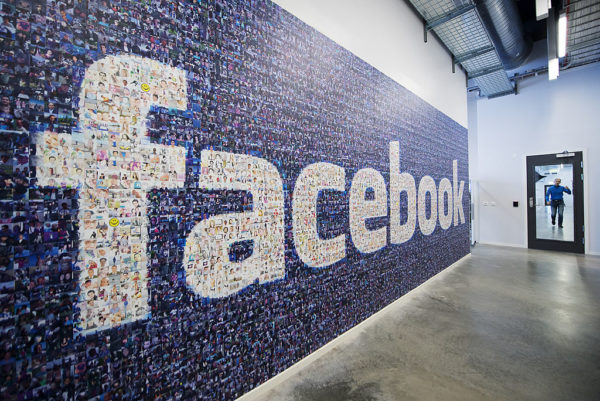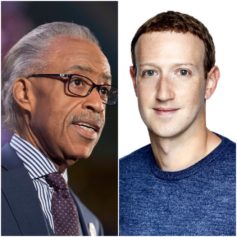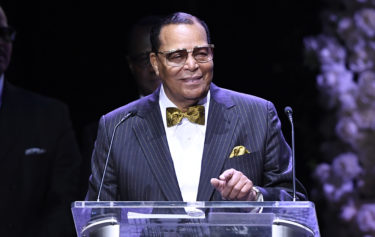Facebook COO Sheryl Sandberg has agreed to meet with top civil rights groups this week to discuss issues laid out in a former employee’s scathing memo about the social network’s apparent “Black people problem.”
Mark Luckie quit his job with Facebook earlier this month, but not before publicly criticizing his former employer’s paltry efforts to increase diversity so that it may better represent the platform’s Black user base. Luckie, who joined the company as a strategic partner manager for influencers last October, also accused Facebook of only paying lip service to its nonwhite users and influencers, but then refusing to highlight their work or invite them to company events.

In 2017, only 1.7 percent of Facebook’s nearly 8,500 employees were African-American.(Credit:AFP PHOTO/JONATHAN NACKSTRAND
The biting criticism preceded a letter by civil rights groups Color of Change and the Leadership Conference on Civil and Human Rights asking Facebook’s top execs to address a number of civil rights issues the organizations say impact Blacks and other underrepresented groups who use the website.
“Facebook has a responsibility to ensure that the platform is not used to drive bigotry and stoke racial or religious resentment and violence,” the groups wrote in the letter addressed to Sandberg and Facebook CEO Mark Zuckerberg. “But for years, Facebook’s refusal to acknowledge and/or chronic mismanagement of civil and human rights violations occurring on the platform has raised many questions about Facebook–primarily, whether you are willing or able to fix the toxic online environment that you have allowed to flourish.”
Representatives for the groups told Buzzfeed News they are scheduled to meet with Sandberg at Facebook’s Menlo Park campus on Thursday. Zuckerburg isn’t expected to attend, however.
In their letter, the groups urged Facebook to “take immediate steps to build public faith in Facebook — faith that’s further eroded every day as we learn more about how the company has undermined our democracy and civil society.” Their demands also called for the creation of a C-Suite level role for a Chief User Advocate who is tasked with “representing users needs” and working closely with civil rights groups to ensure those needs are met.
“You have put your enormous corporate thumb on the scale in attempting to make civil rights a partisan issue, when, in fact, civil rights is, and should be non-partisan,” it continued. “Supporting civil rights means respecting the fundamental dignity and equality of everyone. Instead of articulating that view as a core value of your company when you announced the civil rights audit, Facebook has instead positioned itself as equally friendly to those who advocate for civil rights and to those whose political agenda is to undermine those very same rights.”
Luckie’s memo also forced Facebook’s leadership to take a long hard look at its diversity issue, which has come under criticism in the past. A report published by the platform last year revealed that just 145 of the company’s 8,446 employees (1.7 percent) were African-American. Globally, black employees account for just 4 percent of the company’s entire workforce.
“In some buildings, there are more ‘Black Lives Matter’ posters than there are actual Black people,” Luckie opined. “Facebook can’t claim that it’s connecting communities if those communities aren’t represented proportionately in its staffing.”
The ex-employee recalled the microaggressions he often faced from white colleagues as just one of a few Black workers at the company, writing how they would “look directly at me and tap or hold their wallet or shove their hands down their pocket to clutch it tightly until I pass” them in the halls.
In a statement Tuesday, Facebook said it’s been diligently working to rectify its diversity issue.
“The growth in representation of people from more diverse groups, working in many different functions across the company, is a key driver of our ability to succeed,” the company said. “We want to fully support all employees when there are issues reported and when there may be micro-behaviors that add up. We are going to keep doing all we can to be a truly inclusive company.”


